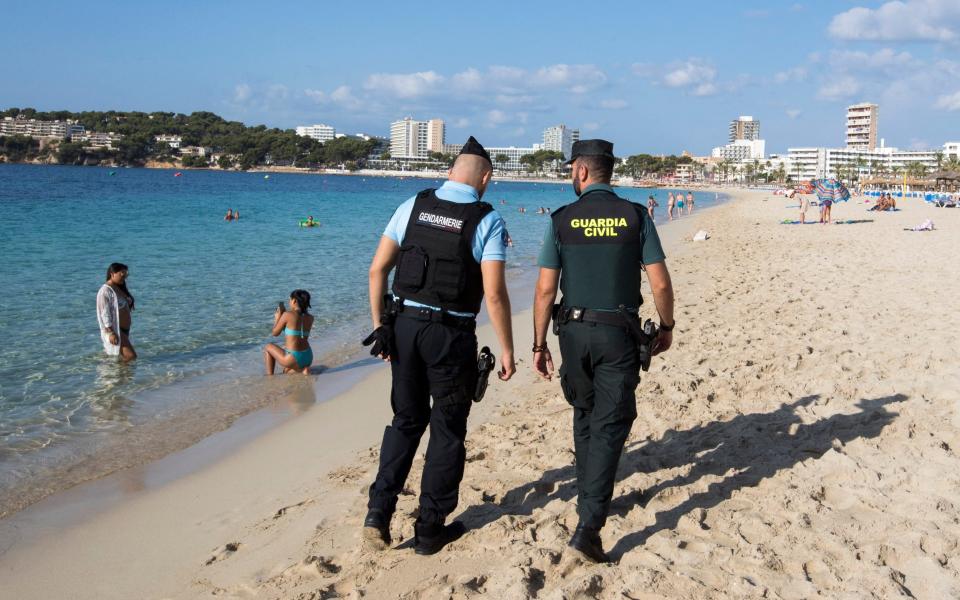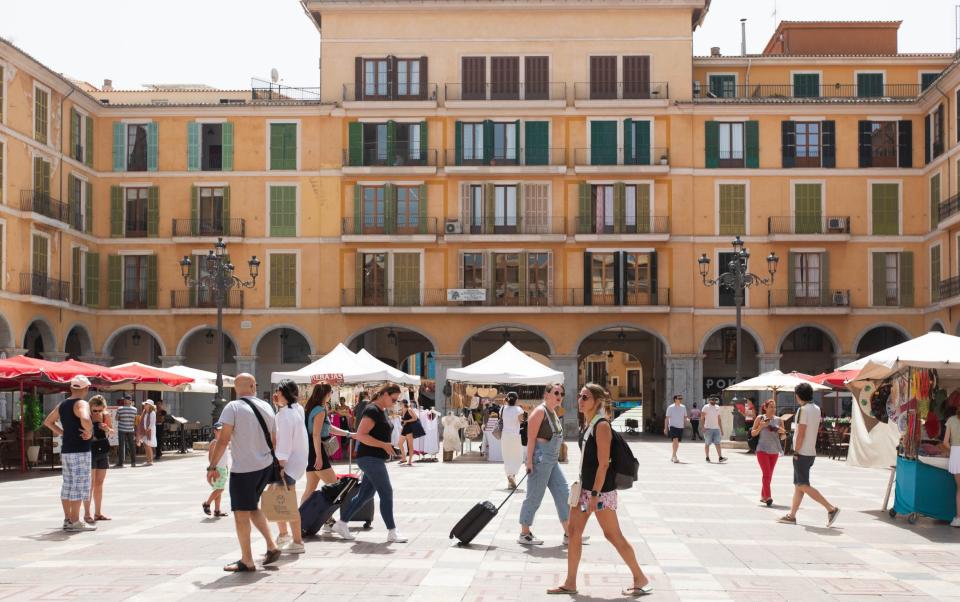Last year the Balearic government sent a warning to British tourists, loud and clear. Misbehave in 2024 and you will be sent home. Sporting the balcony idiot could carry a price tag of £30,000. Some fully organized venues in Magaluf now impose a strict six-drink limit on British guests (under the “Excess Law”) which could be extended island-wide. Last year, plainclothes officers patrolled resorts to keep things under control.
But tourism chiefs said this month that the Balearics’ biggest problem, far more than the follies of a few Braintree gentlemen, is illegal holiday rentals that do not comply with local regulations or have the proper licences.
In October last year, Marta Vidal, the Balearic housing minister, said that there were up to 235,000 unregulated rental properties across the islands, as reported in the Daily Majorca Bulletin. No one knows the exact figure, but we do know from the latest census that there are approximately 26,500 legal vacation rentals across the islands. Someone who has just finished their allotted sixth mojito can see that the balance seems a bit off.
How did we get here? The Balearic islands receive just shy of 14 million international tourists per year – that’s more than the whole of Egypt. Demand for holiday accommodation is high. The platforms are there to rent your property. With an affordable housing crisis and the rising cost of living on the islands, some locals are looking to make extra income in the peak months. In other cases, the landlord is a non-resident who has bought a property as a second home.


Regardless of who is the host, local protest groups say the unchecked rise in vacation rentals has led to an increase in car rentals across the islands, congestion and a drain on local amenities.
Majorca’s tourism chiefs had had enough. At last week’s Exceltur Forum, ahead of the Fitur tourism conference, Gabriel Escarrer, chief executive of Meliá Hotels International, said that Majorca’s biggest problem was “the uncontrolled growth of tourist rental housing”.
Jorge Marichal, president of the Spanish Federation of hotels and tourist accommodation, agreed. He said hoteliers have wrongly tapped into local discontent: “I feel in prison for a murder I didn’t commit. Problems have arisen which are our fault but the holiday rentals are to blame.”
Even Steve Heapy, the smiley head of Jet2 Holidays, the UK’s biggest tour operator, piped up, and focused on one particular holiday rental firm. “If governments were knocking door to door at Airbnb properties demanding licenses and paying fees and fining those who don’t comply, the problem would end immediately,” he said.


A spokesperson for Airbnb said: “It’s always disappointing – but not surprising – to see mass tourism companies complaining about new forms of travel that extend the benefits of travel beyond hotels to families and local communities. Around three out of four hosts in the Balearics share one listing, and a third rely on the extra income to raise the cost of living. We remind hosts to check and comply with local laws before listing their space on Airbnb and have worked with authorities to enforce local rules since 2017.”
Marga Prohens, president of the Balearic Islands, has made the issue of illegal holiday rentals a top priority and announced at the Fitur conference last week that the islands would be working with Booking.com to curb unlicensed accommodation.
“The illegal offer amounts to unfair competition for hotel accommodation and regulated holiday rental accommodation. It damages our quality as a destination and our image to those who visit us and only contributes to an excess of tourists without any control,” she said. The Balearic Islands Tax Agency has also joined the fray, and will provide information it has on tourist rentals to local councils.


This is not the first time that the Balearics have clamped down on holiday rentals. In 2018, Palma de Majorca legislated to ban almost all Airbnb-style rentals. In 2022, Majorca council threatened anyone found to be renting their property without the correct paperwork with a €40,000 (£34,154) fine.
It is obviously a very complex issue. Should we, the tourists, be burdened with at least some of the moral responsibility when we stay?
“I’m not sure tourists fully understand the harm Airbnb is doing,” says Elizabeth Becker, author of Overbooked: The Exploding Business of Travel and Tourism. “Tourists act like consumers and Airbnb has been quite effective in pushing back publicly against the evidence of its harm.
“Airbnb story tourists want to believe that this is a ‘sharing’ business, not the predatory real estate enabler that rewards absentee businesses for buying up entire neighborhoods, pushing out locals, harming the environment and increasing inequality,” she said.
Indeed, Airbnb has faced a global backlash in recent years, with the company working with local authorities to comply with new holiday rental regulations – just last year, strict measures were implemented in Florence, New York City and Scotland. Since 2020, he has been cooperating with the local authorities in Ibiza to remove illegal rentals.
Clearly, the burden falls on local government to get the problem of unlicensed holiday rentals under control. And that project, according to a recent statement, is getting bigger in 2024. But there is an app, Holiday Rental Check Mallorca, that allows you to check if your accommodation is above board. Who knows. If you use it, stick to your daily quota of six mojitos and refrain from jumping between balconies, you might be asked back.